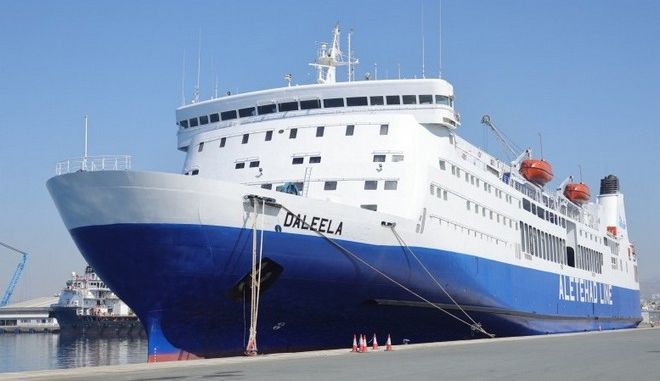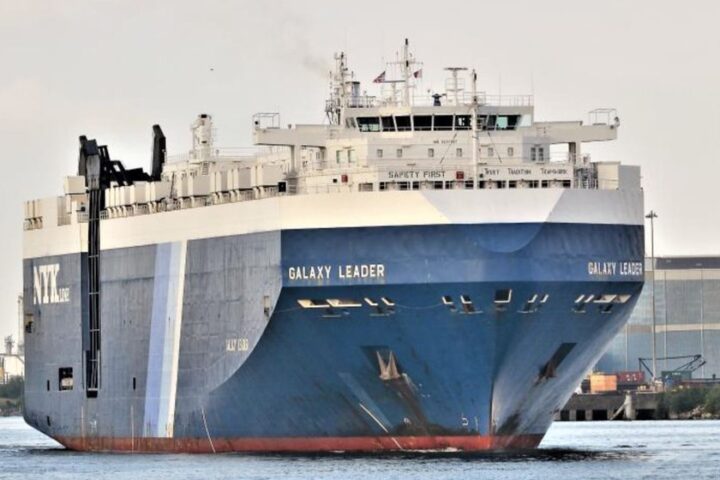The Cyprus Shipping Chamber wants the new junior minister for shipping to speed up reforms of the maritime sector and ministry restructure to make it more competitive as a key pillar driving the economy.
Vassilis Demetriades, sworn in on Friday as the new Shipping Deputy Minister after his predecessor Natasa Pilides took over the Energy portfolio in a reshuffled Cabinet, met with the CSC board members in Limassol on Monday.
Afterwards, he stated, “We share common goals and vision for the future prospects”.
Demetriades said that changes at the ministry “are already underway” which will help all stakeholders face the challenges together.
At the meeting, chaired by CSC President Philippos Philis, the deputy minister was briefed about the proposals put forward by the shipping industry on pending administrative issues, the structure of the ministry, as well as the further upgrade of services provided by the maritime administration.
“Especially now that shipping is trying to overcome the impact of the pandemic and maintain its viability, it is necessary to continue the important work that has been done since the establishment of the Shipping Deputy Ministry in March 2018,” the CSC said in a statement
It said efforts must “further upgrade the image of Cyprus as one of the most important and fully structured shipping centres worldwide”.
Demetriades anticipates the support of the CSC “in a number of actions that I intend to promote”.
He will first consult with his associates at the ministry before making any further announcement.
“All of these actions aim to improve the quality of services provided by the Deputy Ministry as well as the Cyprus maritime sector in general,” Demetriades said.
When the new junior minister was first announced on June 24, the CSC said it was imperative that the staff shortage at the ministry was quickly resolved, as well as the implementation of the “national strategy” to meet the growing demands of the Cyprus maritime hub, the third-largest flag in the EU and eleventh biggest register in the world.
Seafarers rights
Already, the CSC has been at the forefront of promoting seafarers’ rights, with its members employing up to 60,000 onboard their vessels around the world and calling on governments to follow the example of Cyprus and facilitate crew changes.
Only last week, 13 maritime nations joined the growing number of states allowing crew changes by signing a pact for exemptions in port controls and more commercial flights to accommodate thousands of exhausted seafarers stuck on board ships around the world.
More than 200,000 seafarers are stranded at sea and have overrun their contracts with another 200,000 waiting to start employment and get paid by working at sea.
The 13 countries – Denmark, France, Germany, Greece, Indonesia, Netherlands, Norway, Philippines, Saudi Arabia, Singapore, the UK, United Arab Emirates, and the US – now recognise seafarers as key workers.
A demand proposed by Cyprus and other maritime hubs when the strict lockdown measures were imposed in March.
As ‘key workers’, seafarers would be in the same category as front-line staff in the health and security services of any country, as well as professionals employed in utilities, necessary to keep an economy functioning.
Cyprus was among the first to adopt crew-change protocols since the coronavirus pandemic hit global shipping and Covid-19 travel restrictions were put in place, preventing crews from disembarking.
The International Maritime Organisation has created a 12-step process for states to make crew changes safe and efficient, while the International Transport Workers’ Federation (ITF) called on governments to act swiftly to give seafarers visa, border and quarantine exemptions to make crew changes possible and resolve the present crisis.
The ITF said that port states where ships dock, flag states where ships are registered, transit hubs with airports and the home countries of seafarers, all need to make visa, quarantine, and border exceptions for seafarers.










